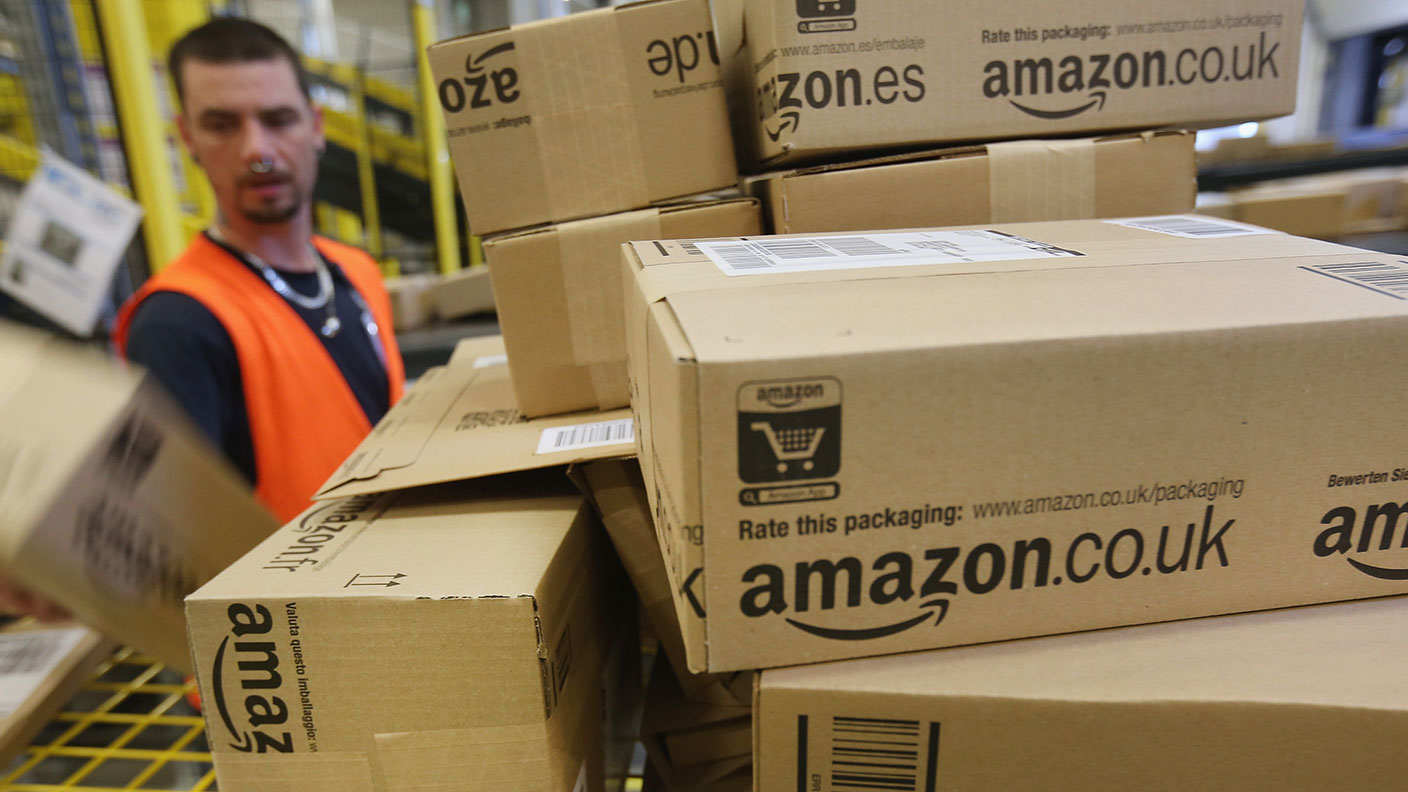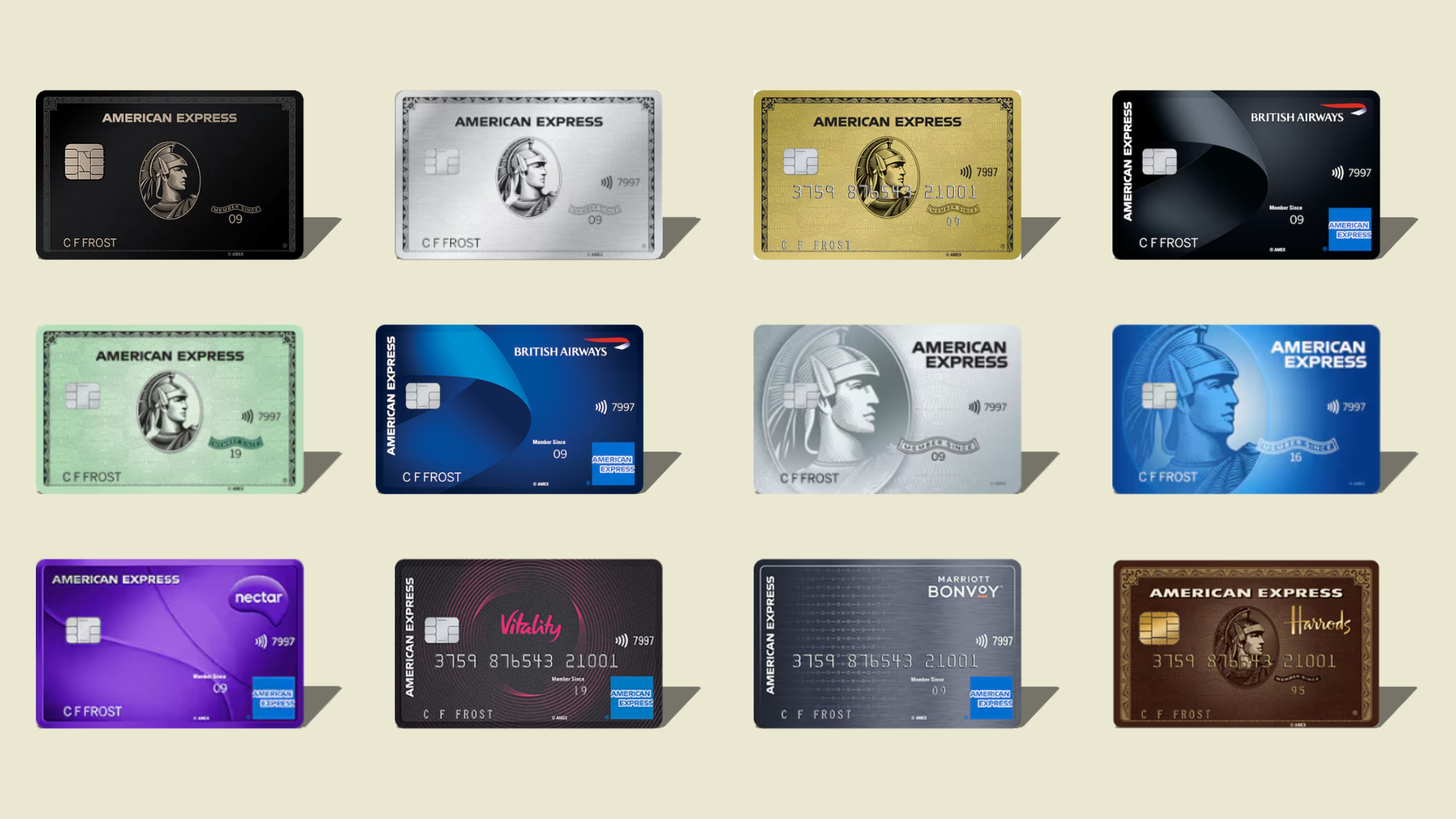Amazon signs a truce with Visa on credit card fees
Amazon has reached an agreement with Visa that allows its customers to continue paying by Visa credit card. Saloni Sardana explains what's happened and why.


Get the latest financial news, insights and expert analysis from our award-winning MoneyWeek team, to help you understand what really matters when it comes to your finances.
You are now subscribed
Your newsletter sign-up was successful
Want to add more newsletters?

Twice daily
MoneyWeek
Get the latest financial news, insights and expert analysis from our award-winning MoneyWeek team, to help you understand what really matters when it comes to your finances.

Four times a week
Look After My Bills
Sign up to our free money-saving newsletter, filled with the latest news and expert advice to help you find the best tips and deals for managing your bills. Start saving today!
Amazon has reached an agreement that paves the way for it to continue accepting Visa credit card payments across all of its websites and stores, ending months of uncertainty over credit card fees.
Under the deal, Amazon will no longer levy an additional fee to customers who use Visa Cards onsite in Australia and Singapore. The agreement also eliminates the threat of Amazon blocking Visa credit card payments on its UK store, the company told the Financial Times
Visa said: "This agreement includes the acceptance of Visa at all Amazon stores and sites today, as well as a joint commitment to collaboration on new product and technology initiatives."
MoneyWeek
Subscribe to MoneyWeek today and get your first six magazine issues absolutely FREE

Sign up to Money Morning
Don't miss the latest investment and personal finances news, market analysis, plus money-saving tips with our free twice-daily newsletter
Don't miss the latest investment and personal finances news, market analysis, plus money-saving tips with our free twice-daily newsletter
Why did Amazon want to ban Visa credit card payments?
Amazon was due to ban UK visa credit card payments on 19 January this year because of what it says are “high fees… for processing credit transitions.”
Amazon first proposed the ban in November, and offered consumers a £20 Amazon voucher to encourage them to ditch Visa for an alternate form of default payment .
The fuss over Visa’s fees is to do with Britain’s departure from the EU, which meant that cross-border “interchange” fees, which are charged by credit card providers on behalf of the banks that issue them, were no longer capped. The result was that these fees shot up from 0.3% to 1.5%.
Amazon has previously stressed that its spat with Visa is not to do with interchange fees but rather to with Visa’s long-term fees.
But analysts branded Amazon’s threats as pressure tactics to convince Visa to offer co-branded cards, which rivals such as Mastercard and American Express have done. Visa currently does not offer co-branded cards.
“Major players in the retail space tend to have bespoke rates with payment firms, rather than paying published rates. The pressure on Visa was likely a way to negotiate a longer-term agreement on rates, or even to push for a freeze to its current rates,” says David Ritter, financial services strategist at CI&T, an IT and software company.
David Beard, editor-in-chief and personal finance expert of financial comparison site, Lendingexpert.co.uk, said the truce between both giants is a “welcome relief for Amazon customers” as not accepting Visa would have meant customers would be compelled to pay with a debit card or a new Mastercard.
“Paying for items with a debit card means customers wouldn’t have benefited from Visa credit card perks like cheap borrowing if they had a 0% interest period, cashback, rewards and extra protection for purchases over £100,” Beard added.
Get the latest financial news, insights and expert analysis from our award-winning MoneyWeek team, to help you understand what really matters when it comes to your finances.
Saloni is a web writer for MoneyWeek focusing on personal finance and global financial markets. Her work has appeared in FTAdviser (part of the Financial Times), Business Insider and City A.M, among other publications. She holds a masters in international journalism from City, University of London.
Follow her on Twitter at @sardana_saloni
-
 Japanese stocks rise on Takaichi’s snap election landslide
Japanese stocks rise on Takaichi’s snap election landslideJapan’s new prime minister Sanae Takaichi has won a landslide victory in a snap election, prompting optimism that her pro-growth agenda will benefit Japanese stocks
-
 Alphabet 'is planning a 100-year bond': would you back Google for 100 years?
Alphabet 'is planning a 100-year bond': would you back Google for 100 years?Google owner Alphabet is reported to be joining the rare century bond club
-
 What are British Airways Amex companion vouchers, and how do they work?
What are British Airways Amex companion vouchers, and how do they work?American Express customers with British Airways credit cards can effectively double the value of their Avios points by using a companion voucher. We look at what they are, and how you can use them.
-
 American Express introduces 'Plan It' payment instalment option
American Express introduces 'Plan It' payment instalment optionNews Amex users can now split parts of their credit bill into further instalments. Is it worth it?
-
 Which is the best American Express credit card?
Which is the best American Express credit card?American Express credit cards can help you earn cashback or reward points on everyday spending, but which card is the best for you? We compare the options
-
 Act now to bag NatWest-owned Ulster Bank's 5.2% easy access savings account
Act now to bag NatWest-owned Ulster Bank's 5.2% easy access savings accountUlster Bank is offering savers the chance to earn 5.2% on their cash savings, but you need to act fast as easy access rates are falling. We have all the details
-
 Moneybox raises market-leading cash ISA to 5%
Moneybox raises market-leading cash ISA to 5%Savings and investing app MoneyBox has boosted the rate on its cash ISA again, hiking it from 4.75% to 5% making it one of top rates. We have all the details.
-
 October NS&I Premium Bonds winners - check now to see what you won
October NS&I Premium Bonds winners - check now to see what you wonNS&I Premium Bonds holders can check now to see if they have won a prize this month. We explain how to check your premium bonds
-
 The best packaged bank accounts
The best packaged bank accountsAdvice Packaged bank accounts can offer great value with useful additional perks – but get it wrong and you could be out of pocket
-
 Bank of Baroda closes doors to UK retail banking
Bank of Baroda closes doors to UK retail bankingAfter almost 70 years of operating in the UK, one of India’s largest bank is shutting up shop in the UK retail banking market. We explain everything you need to know if you have savings or a current account with Bank of Baroda
